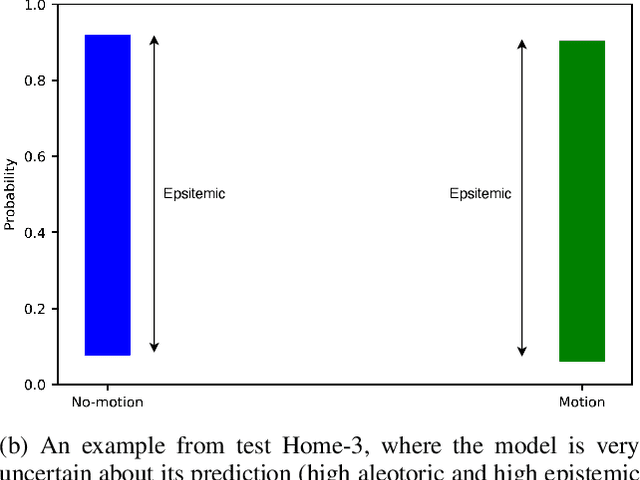Sai Prashanth Chinnapalli
Quantifying Uncertainty with Probabilistic Machine Learning Modeling in Wireless Sensing
Oct 12, 2022



Abstract:The application of machine learning (ML) techniques in wireless communication domain has seen a tremendous growth over the years especially in the wireless sensing domain. However, the questions surrounding the ML model's inference reliability, and uncertainty associated with its predictions are never answered or communicated properly. This itself raises a lot of questions on the transparency of these ML systems. Developing ML systems with probabilistic modeling can solve this problem easily, where one can quantify uncertainty whether it is arising from the data (irreducible error or aleotoric uncertainty) or from the model itself (reducible or epistemic uncertainty). This paper describes the idea behind these types of uncertainty quantification in detail and uses a real example of WiFi channel state information (CSI) based sensing for motion/no-motion cases to demonstrate the uncertainty modeling. This work will serve as a template to model uncertainty in predictions not only for WiFi sensing but for most wireless sensing applications ranging from WiFi to millimeter wave radar based sensing that utilizes AI/ML models.
 Add to Chrome
Add to Chrome Add to Firefox
Add to Firefox Add to Edge
Add to Edge